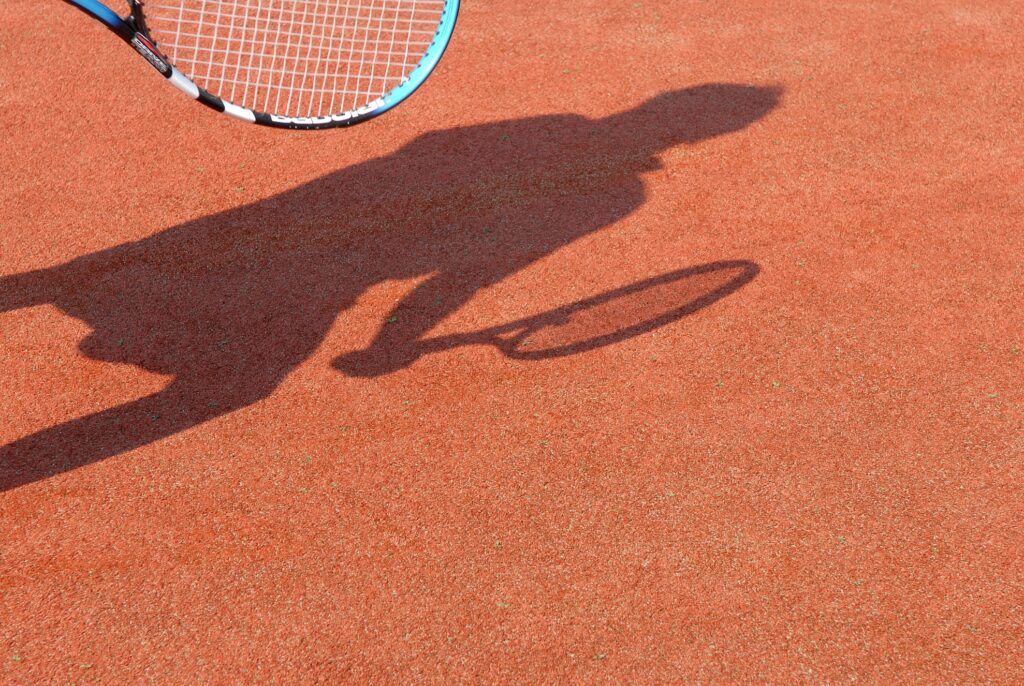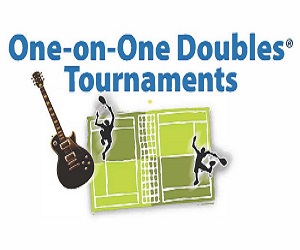Branding Yourself in Tennis and in Life

So you are in a competitive match and the score is 4-4 in the third set with your ranking is on the line. Your parents, maybe a college coach, a friend or other adversaries are watching. Now is the time when the rubber hits the road. It does not matter if you win or lose, what matters is how you are going to complete the match. You are branding yourself. How are you going to act and behave? How are you going to compete? What will you do after the match is over? How will people perceive and remember you?
Developing your own personal brand is similar to product branding. The overall goal with branding is to differentiate yourself in the tennis world so you can attain your objectives. By landing your dream college of choice or getting on that USTA team you want to make, to simply just becoming known both on and off the court as the hardest worker are all keys to your own self-branding. The process includes defining your brand attributes, positioning yourself in a different way than your competitors and managing all aspects of that perception.
John McEnroe branded himself as a tennis brat early in his career because of his inadequate behavior. As entertaining as it was, he was a winner as his overall talent helped him to triumph. However, the chances of you winning a Grand Slam title are slim, and a good majority of you will not play tennis in college. So what you are left with is your own personal brand. If you wish to portray yourself as something less than a person of integrity and honor, you will be known as just that type of person. Back in the 1970s and 1980s, we did not know John McEnroe as a good person, a family man and somebody who really wants to give back to tennis in a meaningful way. We know better now, but it took him a very long time to break the perception of the brand that he initially portrayed.
Have you ever sat in the tennis clubhouse and had a friendly chat about other people’s tennis game? Most have had these types of conversations, while asserting your own opinion about others. Things like, he or she works really hard on the court or he/she cheats and gives bad lines calls might be discussed. Those people have placed a personal brand on themselves. Your behaviors both on and off the court will follow you throughout life and affect your reputation possibly forever. A player who quits a team in the middle of a season could effectively be branded a quitter even though that person may believe there is good foundation behind that decision. Someone who confuses hurt with injury could be branded as lazy (although you have to know your level of pain tolerance working with a medical professional).
I am in the business of interpreting your brand. I talk with parents and players who are interested in playing tennis in college often. That first impression is the one you initially make and you do not get a second chance to make a first impression. The first impression, right or wrong, is the first attribute people see and the brand foundation has just been laid. Personally, I know I cannot hold a poker face and I tend to wear my emotions on my sleeve when competing. Maybe I shouldn’t, and I try very hard to overcome it so that I can be more successful and I work at it often. My perceived brand might be that I am emotional. Therefore, my opponents might try to unravel me while in the heat of competition. I have been branded and now have that obstacle to overcome.
Knowing your own weakness or the bad brand within you is an invitation to improve yourself; it is a work in progress all the time. However, when I coach, one of my priorities is making sure my players represent themselves as a person full of integrity and honor; character counts! This is the brand I am interested in creating as well as developing young people’s skills both on court and off the court. My players and the way they represent themselves will prove if I have been successful. This brand that I market on the court will speak volumes as to the team I want and the person that I strive to be every day. A brand is important because when you step back in the years to come asking yourself if you made the world a better place, what is the answer? Have I impacted young people to become better people and better tennis players? I use the game of tennis as a tool to augment a brand.
On the tennis court, you can also make the playing environment better. Do you make the correct line calls? Did you treat your opponents with respect? Do you treat your doubles partner with dignity and all people similarly? Are you known as a competitor who will work their hardest? Did you walk into the tennis club and treat the employees the way you want to be treated? Money in your pocket and the means to play tennis is not permission to act unruly! How did you brand yourself today and every day?
Today, Facebook and other social media outlets play an important part in how we brand ourselves. It is said you would never want to do anything on the tennis court to help you lose. Why would you knowingly brand yourself poorly in the game of tennis and in life? For college recruits that is a strong message.
Be a better tennis player by giving 1,000 percent effort and brand yourself accordingly … not just on the tennis court, but everywhere!






